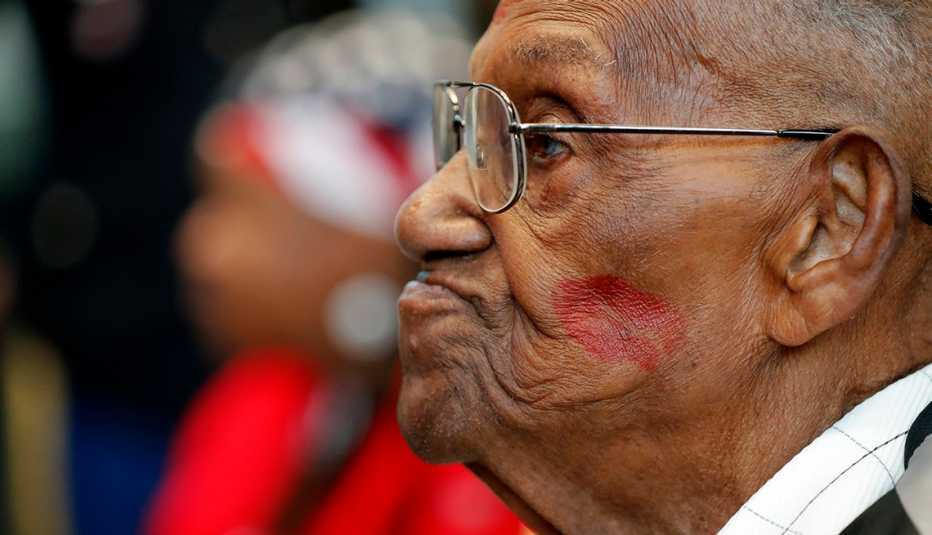AARP Hearing Center


Lawrence N. Brooks, the oldest World War II veteran in the U.S. — and believed to be the oldest man in the country — died on Wednesday at the age of 112.
His death was announced by the National WWII Museum and confirmed by his daughter. Most African Americans serving in the segregated U.S. armed forces at the beginning of World War II were assigned to noncombat units and relegated to service duties, such as supply, maintenance and transportation, said Col. Pete Crean, vice president of education and access at the museum in New Orleans.
“The reason for that was outright racism — there’s no other way to characterize it,” Crean said.
But Brooks, born on Sept. 12, 1909, was known for his good-natured sense of humor, positivity and kindness. When asked for his secret to a long life, he often said, “serving God and being nice to people.”
“I don’t have no hard feelings toward nobody,” he said during a 2014 oral history interview with the museum. “I just want everything to be lovely, to come out right. I want people to have fun and enjoy themselves — be happy and not sad.” On sunny days, Brooks was known for sitting on the front porch of the double shotgun house he shared with daughter Vanessa Brooks in the Central City neighborhood of New Orleans. Neighbors would call out to the local celebrity, wave and bring him soda and snacks.
Brooks was passionate about the New Orleans Saints football team and never missed a game, his daughter said. His church, St. Luke’s Episcopal, was also close to his heart and he never missed a Sunday service until the coronavirus pandemic hit.
Originally from Norwood, Louisiana, near Baton Rouge, Brooks’ family moved to the Mississippi Delta when he was an infant. He was one of 15 children, and lived too far from the nearest school, so his parents taught him what they could at home.
Brooks was working at a sawmill when he was drafted into the U.S. Army in 1940. After Japan’s attack on Pearl Harbor, he was assigned to the mostly Black 91st Engineer General Service Regiment stationed in Australia.



































































More on Home and Family
Daughter's Final Moments With Father in VA Nursing Home
Air Force vet's passing marked by roll call of fellow residents
Library of Congress Seeks Firsthand Stories of Military Service
Veterans History Project preserves accounts from vets, family members for future generations
The Mistake That Haunts an Arlington Cemetery Tomb Guard
A Hollywood dream that influenced a real-life call to duty